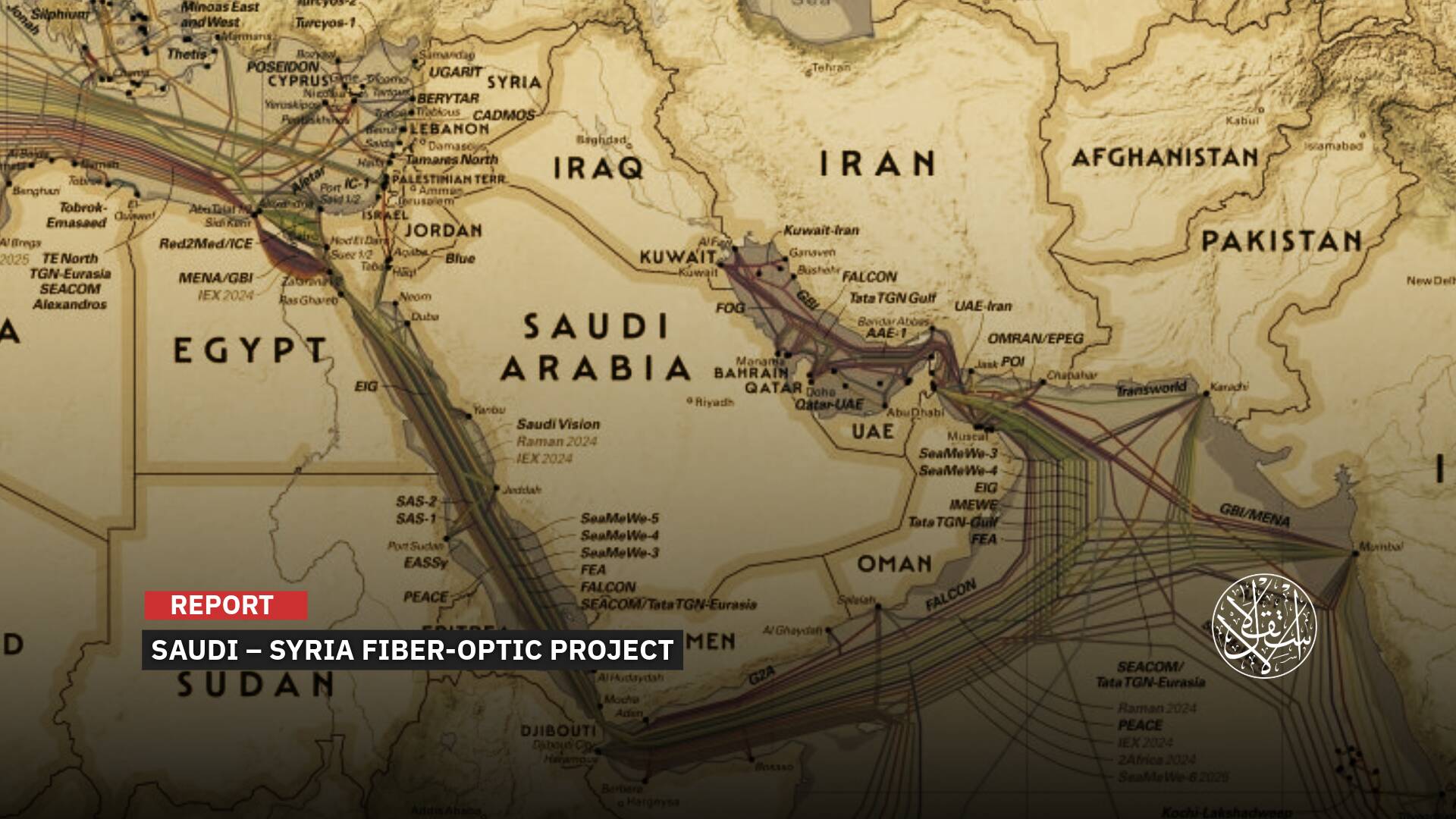Nostalgia for Colonial Era: How France Lures Moroccan Talent

The New system will facilitate visa application appointment procedures.
France continues to implement new measures aimed at attracting highly skilled labor, particularly from its former colonies such as Morocco.
The French Consulate in Rabat announced a new system designed to streamline and facilitate visa application processes for Moroccan students who have completed their higher education in France or at French schools in Morocco.
According to AnfaNews on June 20, 2024, the new system aims to facilitate visa issuance for graduates from French universities with degrees in fields like engineering or higher degrees such as PhDs, registered on the Graduates of France platform.
The website mentioned that the new system will facilitate the procedures for obtaining an appointment for submitting visa applications and processing the file faster. There will be specific dates for submitting application files.
Sandrine Lelong-Motta, the Consul General of France in Rabat, explained that visa applications will continue to be processed according to Schengen Area regulations, but the new system will significantly simplify procedures.
In a video on X posted on June 17, 2024, she clarified that "this does not mean that all applications will automatically receive visas, but if the application file is complete and meets the requirements, the applicant will be able to obtain a visa valid from one to five years."
Motta emphasized that “this visa will allow holders to enter France and travel within the European Union, and applications can be submitted starting now.”
Blatant Exploitation
The political activist Lhowari Said Choukri commented on the consulate's decision, stating, "France annually welcomes hundreds of exceptional students, geniuses, and engineers from Morocco without investing a single cent in their education. This is colonialism in a new guise."
Union and political leader Halima Chouika said, “The consulate's announcement is neither new nor surprising, as France continues its practice of draining Moroccan talents and intellectuals.”
In her interview with Al-Estiklal, Chouika said, "This has been an ongoing reality for decades, not just years." She pointed out that one reason for its persistence is that the Moroccan education system, both pre- and post-baccalaureate, closely mirrors the French system.
For instance, she explained that preparatory classes in Morocco are replicas of their French counterparts. "Many Moroccan students who don't achieve the required grades to enter Moroccan schools find refuge in French classes, which have limited seats.”
"We know many who scored below the necessary threshold in Morocco but still managed to enter the same schools in France and excel compared to the French students themselves," she added.
The issue becomes more serious regarding brain drain when Moroccan students graduate, whether from French or Moroccan schools, and do not find job opportunities in Morocco that match their qualifications and skills.
She believes that "some companies exploit engineers for low wages, leaving them no choice but to seek better job opportunities abroad, which means a real drain on the state, especially as significant amounts have been invested in their training."
Khalid Samadi, former Secretary of State for Higher Education and Scientific Research, sees the French embassy's announcement as part of a broader "plan to attract Moroccan talents educated in French higher education."
Speaking to the local website Hespress on June 20, 2024, Samadi said that “France's relationship with former colonies, like Morocco and Algeria, is marked by a long-standing strategy to attract top talents, whether studying in France or in the Maghreb countries.”
As an expert in education and training issues, he noted that France faces a "significant labor shortage, similar to other European countries, driving it to find new strategies to fill this gap and attract skilled individuals."
Samadi emphasized that visa facilitation for Moroccan students is part of these strategies, extending to numerous French agencies across the kingdom, and encouraging high school graduates to go to France.
He pointed out the emergence of new forms of migration among Moroccan talents, such as remote work for foreign companies from within Morocco.
Samadi suggested that "Morocco's response should include providing conditions and incentives for Moroccan students, especially regarding scholarships and salaries."
Brain Drain
By the end of 2023, a report by Le Monde revealed an increase in the migration of Moroccan talents to France.
Morocco ranked second among Middle Eastern and North African countries in terms of talent migration, despite government efforts to curb this worrying trend.
According to the report, French companies recently sought to attract Moroccan computer engineers, as well as skilled workers in fiber optics and mechanics.
The report highlighted that French companies hired about 1,900 workers on permanent contracts in 2022, compared to only 300 in 2013, indicating a growing brain drain from Morocco to France.
Le Monde noted that professional migration is facilitated by the French Office for Immigration and Integration (OFII) in Casablanca, which collects and submits visa applications to the consulate.
Among the qualified workforce processed by the office, 65% are computer engineers, along with industrial sector technicians, including mechanics sought after by car manufacturing companies.
Previously, Minister of Higher Education, Scientific Research, and Innovation Abdelatif Miraoui of Morocco revealed that nearly 3,700 engineers and doctors emigrate annually.

Involving 700 doctors and between 2,000 to 3,000 engineers, Minister Miraoui highlighted that in 2018 alone, 603 doctors left Morocco, representing 30 percent of the graduates from medical and pharmacy schools.
A previous official report noted an increase in Moroccan doctors practicing abroad, ranging from 10,000 to 14,000, indicating that statistically, one out of every three doctors works outside the country.
This brain drain results in significant financial losses for Morocco annually, especially in crucial sectors like healthcare. Reports estimate that Morocco loses between 0.10 and 0.25 percent of its GDP each year due to the emigration of doctors alone, not to mention other professionals.
International reports calculate the cost of brain drain by considering the state's investment in educating and training these individuals, who then seek better opportunities abroad. Consequently, Morocco loses the benefit of its investment in these professionals, whether they are doctors, engineers, or other highly skilled individuals who choose to settle outside the country.
Government Responsibility
Public sector engineers in Morocco face significant discontent due to stalled negotiations with the government. They have held numerous protests, including a demonstration in front of parliament on April 24, 2024.
Engineers accuse the government of ignoring their demands in the current social dialogue and warn of a potential "brain drain" abroad. They have highlighted the neglect and exclusion of their issues since the dialogue began, expressing hope for discussions about their status and salaries in the public sector.
In January 2024, the same union threatened to launch a series of protests if their demands were not met and a dialogue with the Ministry of Budget was not opened. Public sector engineers' demands include establishing a regulatory framework, raising salaries, and organizing the engineering profession.
According to the economic newspaper LesEco, more than 600 Moroccan engineers in technology and IT leave the country each year, equivalent to the annual graduates of four engineering schools in Morocco. Those who remain often look for opportunities to emigrate, placing a heavy responsibility on government officials.
Halima Chouika believes the first step to address this issue is to reform the educational system to accommodate the country's intellectual and scientific talents, ensuring all students have adequate study spaces and environments conducive to learning.
Speaking to Al-Estiklal, she emphasized the need to develop the job market to prevent the exploitation of Moroccan talents by multinational companies, whether through remote work for foreign firms or local companies.
Chouika insisted that state intervention is necessary to ensure graduates find job opportunities that respect their skills and offer appropriate compensation. Retaining well-trained professionals within the country greatly benefits Morocco and prevents other nations, like France, from exploiting its talents.










